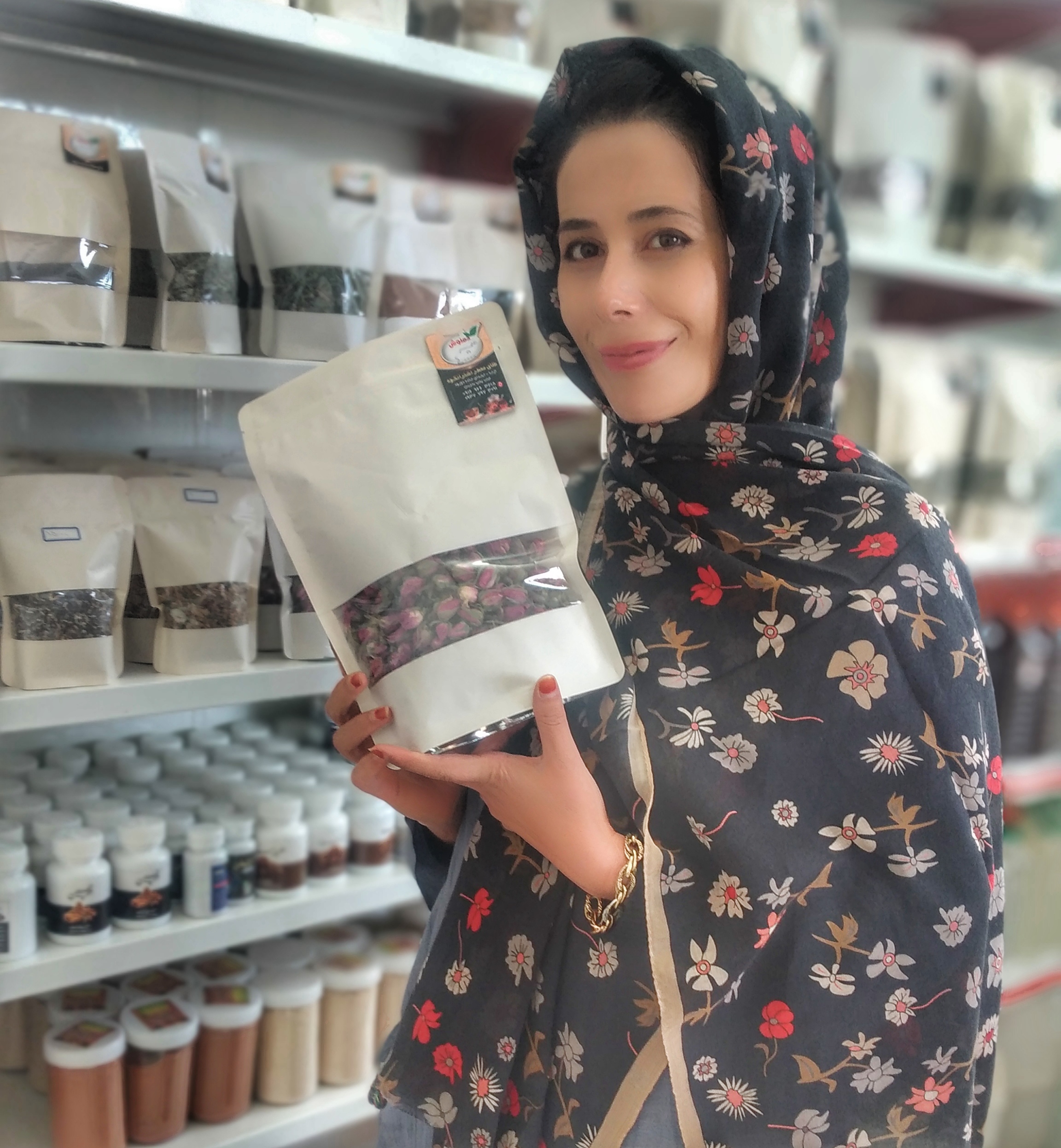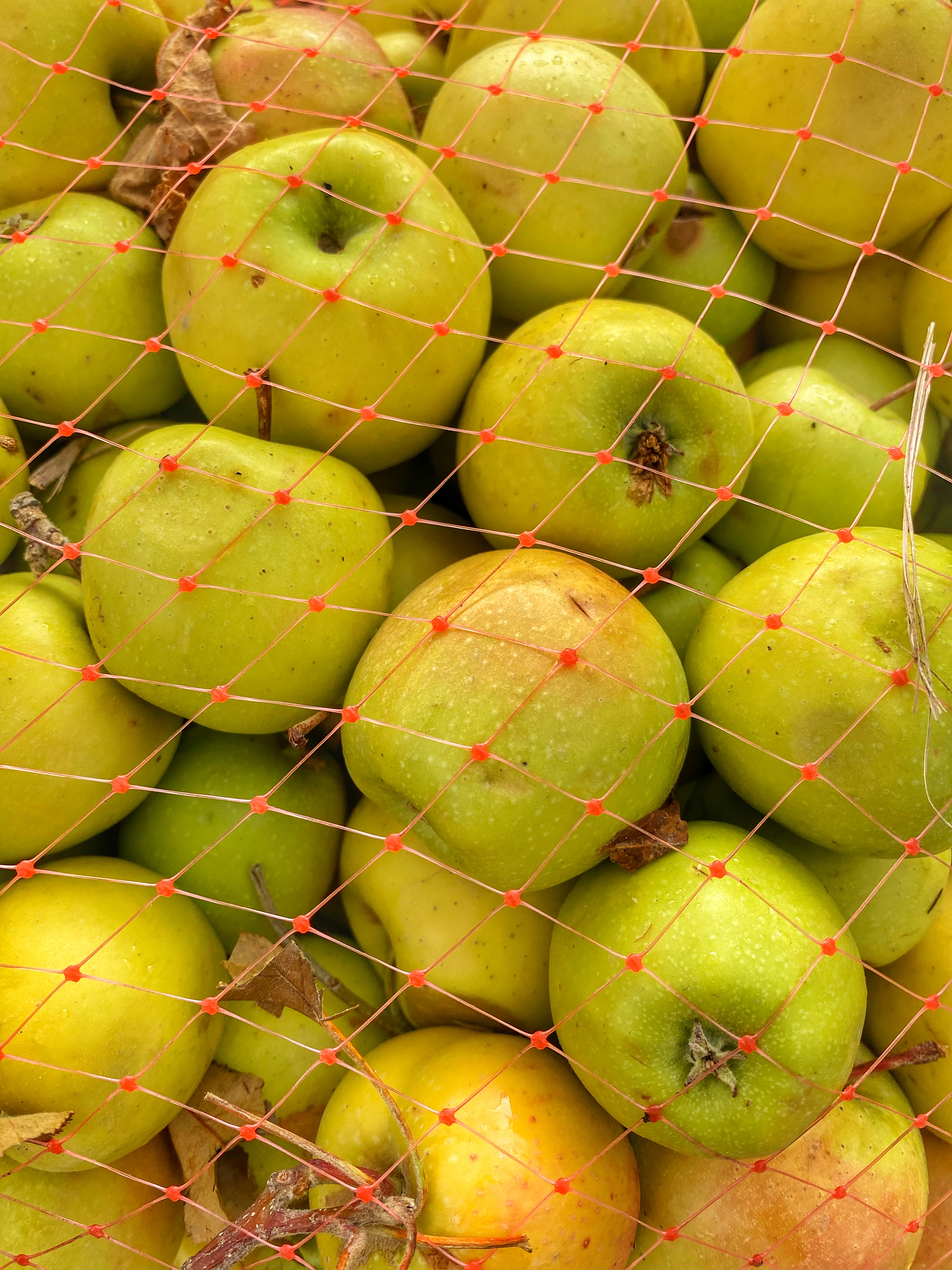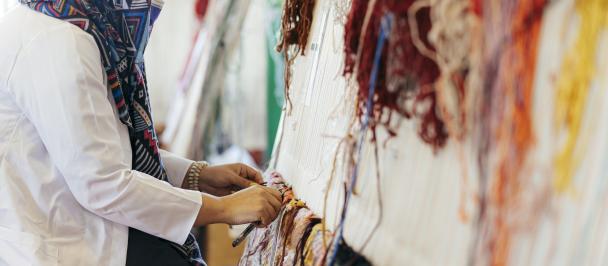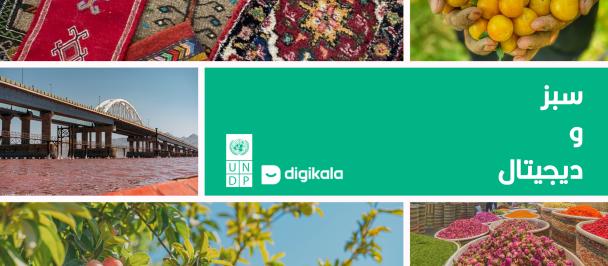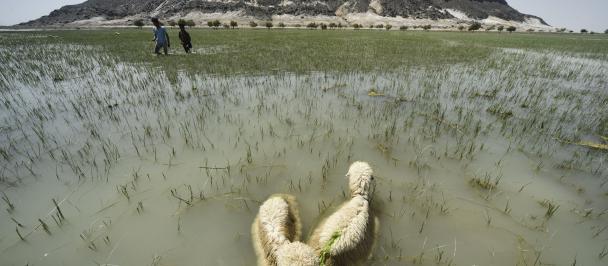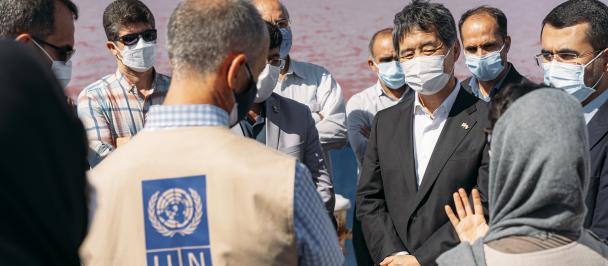Zahra Moghanaki in her local workshop in Azna, Lorestan Province
برای خواندن این متن به فارسی اینجا را کلیک کنید
A young woman entrepreneur finds opportunity during the pandemic creating a network of rural women and helping them earn a sustainable income while she grows her nature-based business.
Four years into her business, Zahra Moghanaki, 35 from Azna, lost many things with the arrival of the COVID-19 pandemic: her native Lorestan was among the provinces hit hardest by the pandemic. Many businesses had to scale down or close, especially small-scale enterprises and home-based businesses, which are mostly run by women.
Azna, a city in Lorestan province which lies in the Jabolq plain, is a fertile agricultural area that has been home to generations of farmers. After graduating in Agronomy and Plant Breeding in 2009, Zahra joined the local Department of Agriculture Jihad as a contractor to assist local farmers monitor their crops. She also distributed seedlings and rootstocks (including damask rose) among local communities to help them generate an income. She subsequently acquired a Master’s degree in Food Industry Engineering in 2015, and decided to set up a small business.
Zahra hired 10 rural women to gather and petal damask roses during the blooming season and distil them for sale.
The damask rose is in bloom only for one month during the year. It took the women 1-3 days to dry out the 10 kilos flowers, and the business was labour-intensive but brought comparatively little profit. To help grow her business, Zahra moved her small rural workshop to Azna where she expanded her customer base to include tourists from neighbouring cities and provinces.
Zahra had joined the Rural Women Cooperation (under the auspices of Ministry of Agriculture Jihad) in 2009. In 2020, the United Nations Development Programme (UNDP) in Iran rolled out its Rapid Socio-Economic Response (RASER) Initiative in three provinces, including Lorestan, and she learnt through the Department of Agriculture Jihad in Azna that the scheme was offering to support micro-, small and medium-size enterprises affected by the pandemic. Her business was screened and selected as a beneficiary.
Zahra and the empowered women working with her use locally-sourced apples to produce a variety of products
Under the RASER initiative, a drier, generously funded by the People and Government of Japan, was procured, and handed over to Zahra’s workshop. With this, their production quickly went up 10-fold. Zahra’s workshop now produces 100 kilograms of dried damask rose per day. “I also purchased local produce such as apple, quince and pumpkin to diversify my portfolio” Zahra says. She has quadrupled her team too, giving employment mainly to rural women who are either sole breadwinners of their households, or come from very low-income families, thereby giving them the means to earn better.
Zahra says that people prefer organically dried products which have no additives or preservatives over products that air-dried in unhygienic spaces, and as such, her customer-base has increased.
“RASER was a ray of hope. It helped me grow my business; it gave rural women an opportunity to earn a sustainable income and feel more productive, especially at a time when many workshops were out of business. Above all, as I have heard it time and again, working in the workshop lifts the mood of the women. It has become a safe space for them to socialize while earning a living,” the innovative entrepreneur says.
Zahra currently oversees nearly 40 village women who gather medicinal herbs from the fields for her nature-based business. Ten women, five of them from nearby rural areas, help dry and packages herbs and fruits for sale.
But Zahra is not ready to stop here. She says she has received bank loans to purchase more machines to grow her business and make the processing tasks less cumbersome. She is likewise looking to upgrade the marketing process. UNDP has additionally supported Zahra to connect to urban market through a collaboration with a privately owned chain of cafes in Tehran called Sam Coffee Roasters. The café will be selling the fruit tea produced by women of Lorestan. Beyond this, the fruit tea sourced from Zahra’s workshop has also been added to the café’s menu. “We are now confident of a customer base for our products outside Lorestan. This gives us hope and helps us with planning our business growth next year,” she says, adding that she hopes for “UNDP’s support in the form of hands-on marketing training.”
***
UNDP’s socio-economic response is one of one of three critical components of the UN’s COVID-19 response globally. You can find an overview of RASER’s achievements here.

 Locations
Locations